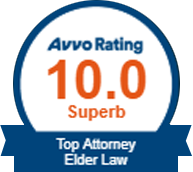When someone needs nursing home care or has extensive medical expenses that he/she cannot afford, Medicaid may provide benefits/services not covered by Medicare. Medicaid is a joint federal-state program. Each state has its own Medicaid rules that operate within the federal guidelines. In New York State, the rules can even vary from one county to the next. Medicaid planning involves assisting a person to qualify for Medicaid benefits, while safeguarding assets for the family.
Medicaid Eligibility
There are two types of Medicaid. If you receive care in the form of health care aides who come to your home, you have “Community Medicaid.” If you require residence with skilled nursing, you have “Nursing Home Medicaid.” New York essentially looks at your income and assets (aka resources) to determine if you are eligible. If your resources exceed the permissible amounts, to qualify for Medicaid, you will need to “spend down” your resources, meaning you are required to reduce your income and assets until you qualify for Medicaid.
The limits on permitted income and assets you can retain are described below:
- Income Standards: In 2020, an individual applicant living in the community (not in a nursing home) may keep $875/month (up from $859/month in 2019) and qualify for Medicaid. Medicaid counts both earned income (from salary or wages) as well as unearned income (dividends, interest, investment income).
- Assets or Resources: Apart from certain exempt assets (such as your home if you live in it, prepaid burial expenses, a car and personal property), you can keep very little and still qualify for Medicaid. For 2020, you may retain $15,750 (up from $15,450 in 2019). This same asset limit applies whether you are in a nursing home or not. For married couples, the limit will be higher.
- Look Back Rule: For purposes of qualifying for Nursing Home Medicaid, you are still deemed to own assets that you gave away within five years of your Medicaid application. The look-back rules do not apply to Medicaid eligibility for Community Medicaid, such as home health care.
Assets Brought Back in Under the Look Back Rule
For Nursing Home Medicaid eligibility, assets given away for less than fair market value are essentially counted as assets still owned. The presumption is always that a transfer within the look-back period was made to qualify for Medicaid. The local Medicaid agency will not even inquire as to why the assets given away for less than they are worth. However, you can try to rebut the presumption by showing that a transfer was made exclusively for a purpose other than to qualify for Medicaid.


